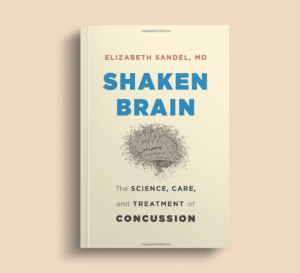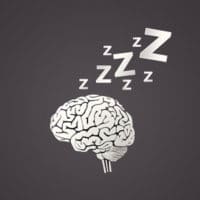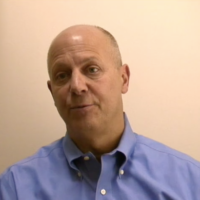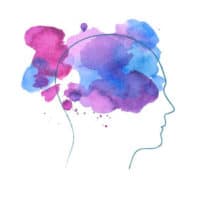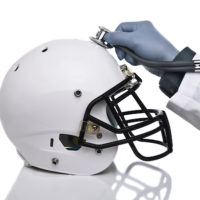3 Things to Do to Allow Your Brain to Recover More Quickly After Brain Injury
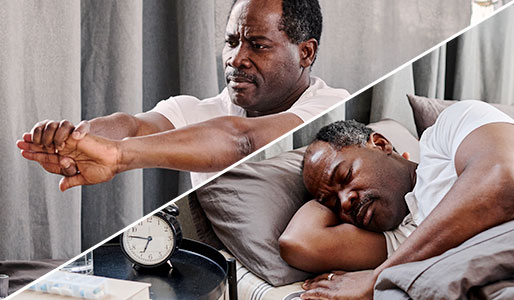
In an interview with neuropsychologist Dr. Richard Delmonico, which is available to view in full on my website here, he discussed three things in particular which help patients recover more quickly after brain injury: Rest, gradual re-introduction of exercise, and reduction of screen time. Dr. Delmonico speaks about those recommendations with regards to youth recovering from injuries sustained in sports, but here we’ll look at the three more generally.
Sleep Can Help the Brain Heal
Doctors working with someone experiencing memory, cognition, and physical problems after a brain injury typically remove that person from their work, school, and/or sports activity for a period of time, using an individualized approach, based on symptom severity and rate of recovery. In general, getting adequate sleep and abstaining from too many taxing mental or physical activities initially are very important in recovery.
See my blog about sleep here.
People need to strike a balance between too much activity, which can stress the brain, and total inactivity, which is also not helpful for recovery after a concussion. By paying attention to symptoms, and following their doctor’s advice, they can strike the right balance. You might find this pocket guide useful when you go to your doctor’s appointment.
Exercise Can Nourish the Brain
Exercise is actually beneficial for brain health, and re-introduction of exercise is very important for people with a history of concussion. People recovering from a brain injury who exercise regularly see improvements in mood, memory, and sleep. Healthcare providers recommend a variety of activities for the most benefit, including activities that get the heart rate up (like walking and swimming), activities that build strength (like resistance training), and activities that require coordination and control (like tai chi, yoga, or sports like golf and bowling).
Return-to-play protocols include a step-wise increase in the exercise intensity for athletes and are followed as soon as the athlete has a significant decrease in symptoms such as headaches or dizziness. If the athlete experiences a re-emergence or increase in symptoms during the protocol, he or she must return to an earlier step in the protocol and symptoms must be monitored closely.
Read more about sleep, rest, and exercise Chapter 3 of my book, Shaken Brain.
(Important: if you are recovering from a brain injury, speak to your doctor before beginning any exercise program.)
Limit Screen Time After Concussion
It’s increasingly impossible to make it through the day without looking at a screen. However, studies have shown that by limiting the amount of time spent in front of a TV, computer, or smartphone, people recovering from brain injuries do so more quickly. Dr. Delmonico, in his work as Co-Director of the Youth Sports Concussion Program at Kaiser Permanente Trauma Center, recommends no more than 1-2 hours per day of screen time in the weeks after a concussion. He has seen in his own practice how excessive screen time can exacerbate symptoms and lengthen recovery time
Allowing Time to Heal
Above all, patients should remember that recovery can be a slow and occasionally frustrating process. There may be good days and bad days. Recovery may not happen in a linear fashion, but it will happen.
Learn more about TBI and recovery in my interview with Dr. Richard Delmonico. Don’t forget to watch the entire interview here.
You Might Also Like
Comprehensive Care of Concussions
Dr. Richard Delmonico, a neuropsychologist, outlines the approaches to triage and treatment in a concussion clinic in the Northern California Kaiser Permanente health system. He also discusses the uses of neuropsychological testing to help with diagnosis and management of people with concussions and other brain injuries.
Rest Assured: Quality Sleep Supports Recovery From Brain Injury
Sleep disturbances are common after brain injury and require comprehensive evaluation and management. Other sleep disorders such as difficulty falling asleep, staying asleep, and excessive daytime sleepiness are common. Some patients with brain injuries develop sleep apnea, and screening for this disorder is important because of the risk of hypoxia and strokes that lead to additional brain injury.
Managing Concussion-Related Pain
Dr. Steven Moskowitz is a physiatrist specializing in pain management. He discusses the various painful conditions, including neck pain and headaches, that occur at high frequency after concussion and related trauma. He advocates for a biopsychosocial approach to the evaluation and treatment of these conditions.
Concussions/Mild TBIs: Early Intervention to Achieve the Best Outcomes
In this Paradigm webinar, Dr. Elizabeth Sandel leads a discussion of concussion management that is based on a systematic, biopsychosocial model. She is joined by a Paradigm colleague, neuropsychologist Dr. Deborah Benson, to explore the evaluation and treatment of the complex issues for people with chronic symptoms.
Getting Top-Notch Care after a Concussion
Concussion clinics vary in terms of protocols and personnel. Neuropsychologist Richard Delmonico discusses one model in the Kaiser Permanente health system.
Keep up to date
Get updates on the latest in concussion, brain health, and science-related tools from Dr. Elizabeth Sandel, M.D.
By clicking SIGN UP, you agree to receive emails from Dr. Sandel and agree to our terms of use and privacy policy.
Get the book!
